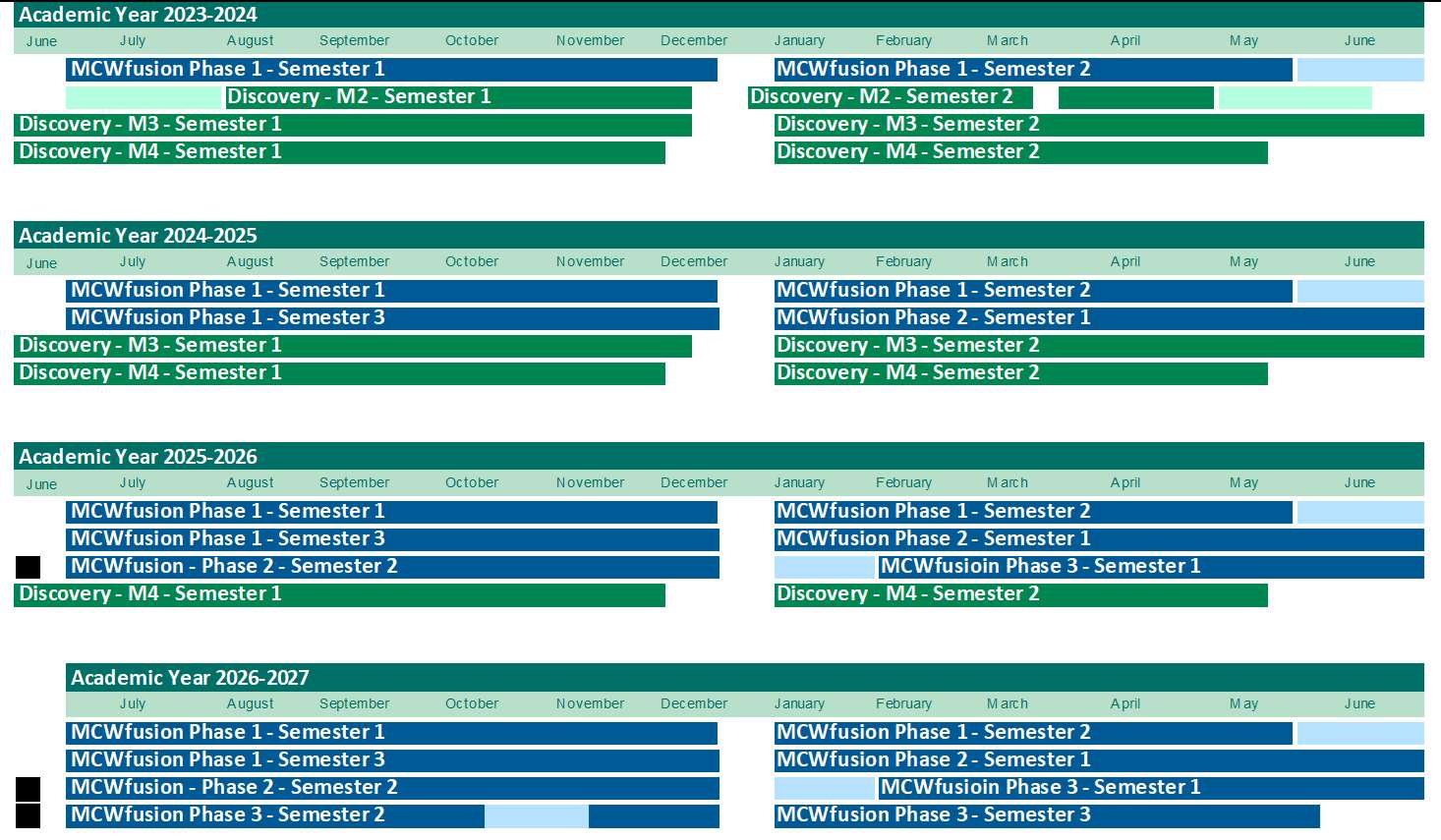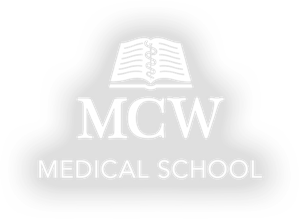Medical College of Wisconsin School of Medicine Curriculum

Are you a new/prospective student?
Are you an existing student?
Why did MCW change its Medical School curriculum?
Factors Influencing MCW's Curriculum Change
Feedback from our students and faculty identified opportunities for improvement within the Discovery Curriculum, including:
- Improved basic science and clinical integration
- Improved preparedness for clerkships during foundational sciences
- Improved readiness for residency from clerkship training
- Importance of well-being initiatives for all curriculum participants
- Recognition of data appraisal needs and application of knowledge, rather than simple fact recall
- Enhanced curricular collaboration opportunities across disciplines
MCWfusion Curriculum Development Process
The structural aspects of the new curriculum were created by input from faculty, staff, students, and faculty volunteers through the following mechanisms:
- Institutional and community stakeholder listening sessions
- Collaborative workgroups utilizing guidelines established by LCME
- Design Sprints involving various representatives of the MCW educational community in critical decisions
- Guidance from MCW's Curriculum Innovation Steering Committee
Curriculum Transition Example
This example highlights curriculum transition activities for the MCW-Milwaukee campus. Regional campuses are on a different time frame.



